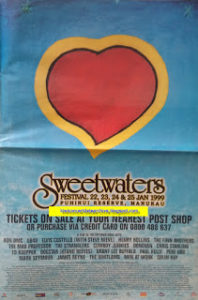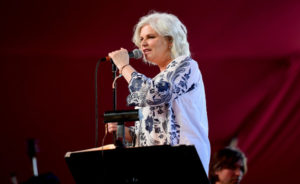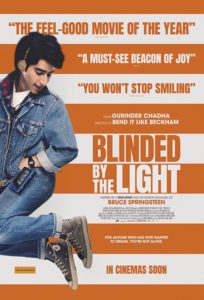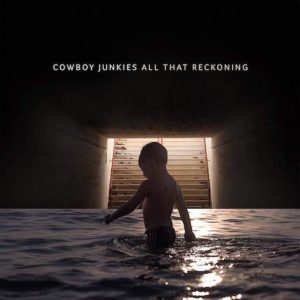Interview: Cowboy Junkies’ Margo Timmins Talks To 13th Floor
Its been 20 years since The Cowboy Junkies last performed in New Zealand. They were part of the notorious Sweetwaters Festival that found many of the artists (Elvis Costello, UB40, Run DMC) not getting paid for their efforts.
Now, the long-serving Canadian quartet is returning to play three shows in May 2020. The band has remained unchanged since they released their debut album way back in 1986.
The 13th Floor’s Marty Duda spoke to vocalist Margo Timmins recently to catch up on what’s been happening with the band since their last NZ visit.
Click here to listen to the interview:
Or, read a transcription of the interview here:
M: The last time you were in New Zealand was what, 1999 is that right?
MT: Something like that, yeah.
 M: You were here for the Sweetwaters festival.
M: You were here for the Sweetwaters festival.
MT: That’s right
M: Somewhat of a debacle I believe, if I’m not mistaken
MT: Yeah A lot of people didn’t get paid, we got paid.
M: Oh, good.
MT: Yeah, we were ok. I don’t know how come we got paid but I think we were just probably first in line
M: So you’re not bitter and twisted and hadn’t stayed away for the last twenty years because of that.
MT: No. And it wouldn’t have been the first time we hadn’t gotten paid …..
M: I can imagine over the last thirty years or so you guys would have some stories to tell.
MT: Absolutely, especially festivals, festivals are notorious.
M: Are they?
MT: Oh yeah.
M: We hear about the Fyre Festival now and the Woodstock that didn’t quite make it and it would seem like people would have their acts together by now but I guess it’s still renegade ….
MT: Yeah, There’s supposed to be one here in Collingwood, a big one, Blondie was coming and Aerosmith and all sorts of people and the promoter ran away with the money. I hope he got a lot cause it seems like a silly thing to do but whatever.
M: Oh well. So why has it been twenty years since you’ve been here? Is there any particular reason?
 MT: It’s been timing. In the last twenty years we all had children at various times and so when a promoter offered us a tour, it wouldn’t fir either in our family time, just didn’t fit, or it wouldn’t fit in the band’s touring time, it didn’t make sense, and it’s just such a big commitment to go far away. When my son was little I didn’t want to take him that far and to leave him for two weeks was just not on the schedule, I just wouldn’t do it. He’s actually gonna come with me this time. He’s sixteen, he’s part of our crew.
MT: It’s been timing. In the last twenty years we all had children at various times and so when a promoter offered us a tour, it wouldn’t fir either in our family time, just didn’t fit, or it wouldn’t fit in the band’s touring time, it didn’t make sense, and it’s just such a big commitment to go far away. When my son was little I didn’t want to take him that far and to leave him for two weeks was just not on the schedule, I just wouldn’t do it. He’s actually gonna come with me this time. He’s sixteen, he’s part of our crew.
M: That’s right, put him to work.
MT: Exactly, so it makes it easier because I’m not gone from home, leaving him behind for that long.
M: Now I don’t know if you’re aware but in the twenty years since you’ve been here, quite an interesting and really good Americana scene has grown up in New Zealand with quite a few female vocalists and I would bet that if I spoke to ask them quite a few of them have been influenced by you.
MT: Oh cool.
M: There’s people like Holly Arrowsmith and Tami Neilson and Ebony Lamb and all these folks that cruise around here.
MT: I hope they come. I hope they get to the show and make sure they come backstage cause I’m always open to meeting new people and especially singers, that’s great.
M: Do you run into many singers who tell you that they’ve been influenced by you?
MT: Well, more and more as I get older.
M: Yeah I suppose that comes with the territory.
MT: Definitely more these days than y’know, and I get a lot of ‘My mum used to listen to you and ever since I heard you when I was eight years old I ……’
M: Nice
MT: It’s always my mum or my grandmother …. Ok.
M: And are you still a big Bruce Springsteen fan?
MT: Oh gosh yeah, always. I mean, y’know, I can’t say I love everything he does but I don’t love everything anybody does…I don’t even love everything we do!
 M: The reason I ask is I’ve just seen a film called Blinded By The Light.
M: The reason I ask is I’ve just seen a film called Blinded By The Light.
MT: Yeah, what is that?
M: Have you seen it?
MT: No, I’ve heard about it, what is it?
M: It’s based on a true story about a Pakistani immigrant outside of London in a place called Luton and it takes place in 1987 in Thatcher’s England, and he’s an aspiring writer and somebody in his high school turns him on to Bruce Springsteen and he becomes like the world’s biggest Bruce Springsteen fan and it kind of inspires him to keep writing. So it’s that story about how he does that, and then at the end of the film, which is a dramatisation, they show photos of him with Bruce and explain how …. and the music is non stop Bruce from beginning to end.
MT: Oh great, well I’ve seen ads on the television and I haven’t paid too much attention to what it is, but I had a note to figure it out.
M: Yeah you may want to check it out. I thought it was interesting that the band released an album about a year ago, All That Reckoning, and being the way that the music industry is changed and all, I’m assuming that there was probably some discussion about whether it was even worth it to put out new music these days, and I’m kind of interested in how that process worked for you guys.
 MT: Well y’know for us, when you start off as a young band, especially as a Canadian young band in the 80’s, you’re not expecting to sell any records. That’s just a given. You put out a record because you want to put out a record, and if somebody listens to it other than your mother, that’s fantastic but there’s really no expectation. I think for us there’s always been that young Canadian band, we put out records because we like to put out records and some of them sell and some of them don’t and we just keep touring and try to pay the rent, and we’ve made a career of it which is, to me, amazing, and lasted this long as a band together and still really enjoy what we do. So that’s why we put out records, it’s just because we want to and we’ve always had that. I think that’s why the major labels couldn’t stand us is because a record to us wasn’t ‘Oh we have to have a hit single and we have to make a million dollars’, it was just, we want to make the best record we can and if it hits fantastic, nobody’s gonna complain, we certainly would have loved a big huge hit, but the fact that it didn’t, didn’t mean we had to stop or it wasn’t worthwhile.
MT: Well y’know for us, when you start off as a young band, especially as a Canadian young band in the 80’s, you’re not expecting to sell any records. That’s just a given. You put out a record because you want to put out a record, and if somebody listens to it other than your mother, that’s fantastic but there’s really no expectation. I think for us there’s always been that young Canadian band, we put out records because we like to put out records and some of them sell and some of them don’t and we just keep touring and try to pay the rent, and we’ve made a career of it which is, to me, amazing, and lasted this long as a band together and still really enjoy what we do. So that’s why we put out records, it’s just because we want to and we’ve always had that. I think that’s why the major labels couldn’t stand us is because a record to us wasn’t ‘Oh we have to have a hit single and we have to make a million dollars’, it was just, we want to make the best record we can and if it hits fantastic, nobody’s gonna complain, we certainly would have loved a big huge hit, but the fact that it didn’t, didn’t mean we had to stop or it wasn’t worthwhile.
So yeah this industry right now is not conducive to selling records, unless you tour and you sell them off the stage and you sell them one by one to each individual person sitting in the audience. It’s almost like a goodie bag for coming to the show. But that’s ok because as I say it was never intended to sell millions, we’re just so happy somebody likes to listen to records and they do, there’s still people who do want to listen to records and that’s fantastic. The industry has been changing since we started and we’ll keep rolling with it and this whole website stuff and now all the downloading songs and putting on videos and all that nonsense and the social media, which I can not stand. But it’s a part of it, y’know it’s a part of the industry and you do it so you can keep playing. That’s the bottom line, you just want to play music.
M: Right fair enough, and of course the band has been constantly going for thirty years and much has been made of the fact that it changes.
MT: I lost you for a second, I have very bad connection so if you lose me it’s not I didn’t hang up.
M: Ok, I appreciate that. Alright I was getting revved up with another question here, so I mean obviously you guys have been together forever and I’m just curious, do you consider it pretty much the same band, does it work internally the same way as you guys did thirty years ago or do the internal working of the band work differently now?
MT: … Pretty much the same, I mean there’s some tweaks here and there. I think we’re much better players than we used to be so in the old days when somebody would have an idea, in order to bring that idea to fruition and make it happen, we would have to rehearse and practise it and do it again and talk about it. Now we can bring an idea and it happens right away, so there’s not as much need for us to be sitting around together and playing and practising. We still do, we were very much aware of making sure we don’t lose what we’re doing, but there’s not as much need, cause we know how to do it. Which makes it great because it means when we’re writing, there’s so much more ideas that can flow and we can go through them and know that’s good, that’s bad whatever, so that’s changed. And our bass player now lives on the other side of Canada in Vancouver so the good thing about today is it’s easy for us to work with him over there and just have him send his bass ideas to us without him actually having to be, so there’s less of that getting together except when we’re touring. And I guess maybe that’s why touring has become so important. But as far as laying down albums, we do it the same way we all get together, we do it live off the floor and I’m always in a booth so I can redo my vocals but the boys are pretty much … it’s live they’re playing together and we don’t do tracks by tracks or anything like that and Mike’s still the boss. It’s pretty much the same I think another thing that’s different is I’m much more selective in and where we’re touring and how we’re touring and how long I’m away from home and from my son or if he’s coming with us, managing both my lives, my private life and touring cause I just find when you get older you have to do a lot more balancing.
M: Along with that it seems like from what I’ve been able to glean from watching videos and reading, you have a pretty intimate connection with your audience or at least your audience likes to think so, so that probably has an effect on how you have to operate when you’re on tour or whatever cause I get the feeling people feel like they know you and own a little piece of you, is there some of that?
MT: Yeah, that’s hard, it’s funny you mention that we just did Europe and I have been finding that when I tour long tours over two weeks, I always get sick and I don’t get sick. I’m not one of these people that always get sick but I always get sick when I do these two week ones. So when we went to Europe I thought, ‘I’m going to see what happens,’ and what happens on the road is that I get really tired…I get really tired. So I thought in Europe I would experiment and see if I don’t go out after every show and meet everybody which is what I do, what happens? And so I didn’t and I didn’t get sick and I think what you’re talking about is it, I think that on my stage I’m not dancing around and there’s no big movement on stage, but I think there is a lot of connecting and I think that does take a lot of energy, and I’ve always wanted the audience to feel that we’re happy to have them there, we want them to be in the music as much as we are and part of that is meeting everybody afterwards, but it is very difficult to do. I’m not going to give it up, that’s for sure, cause it’s very important to me and I know it’s important to others, the people that come to our shows. I’m thinking maybe what I might have to do is do it every other night.
M: Just to find a balance.
MT: Yeah again it’s just the meet and greet. I think the other thing to is we’re at an age and our audience is at that same age where there’s so much going on and people want to share that, they want to share that, our music has been a part of it y’know,’my mother just died and we were playing your music and blah, blah blah’ and you can’t listen to these stories and go Oh well thank you very much goodbye, you have to be in the story and I want to be, I don’t want to just flip them off… ‘here you want an autograph?’ y’know …. so it’s interesting and I’ve sort of created this monster but I don’t want to give it up because I do like the connection, I think in our world we don’t have connection in anything and I don’t want to be a part of that part of our world that like I say social media it just keeps distancing, as humans we need to touch and look into each other’s eyes and speak so I don’t know, we’ll see how I can manage to keep doing it.
M: Now of course one of the things that the band is known for is their covers of other people’s songs and Neil Young and Lou Reed and whoever, and I was curious if you’ve ever had any kind of reaction from any of the original songwriters to any of your cover, good bad or different.
MT: Besides from Lou Reed y’know he actually allowed us to put a quote from him on Trinity Session with Sweet Jane, so that was the biggest one, we’ve heard from a few others, we’ve heard from Neil Young, we’ve heard from a couple, I can’t remember them off the top of my head but as you get more and more into the business people now are much more freer, like when you’re younger, like when we were doing Trinity Session, Lou Reed actually reached out so that was a major event. Off the top of my head I can’t remember. The only sort of negative one was I was singing My Father’s House at a gig in L.A and Springsteen was in the audience, I didn’t know he was there, and afterwards he comes up to me and he said, ‘That took guts,’
Cowboy Junkies
Friday 1st May – Bruce Mason Centre, Auckland
Saturday 2nd May – Opera House, Wellington
Sunday 3rd May – Isaac Theatre, Christchurch